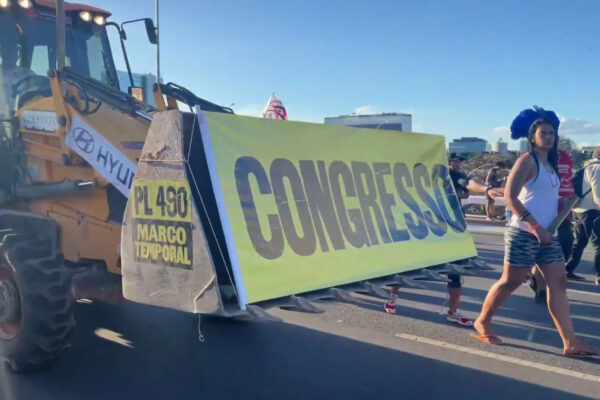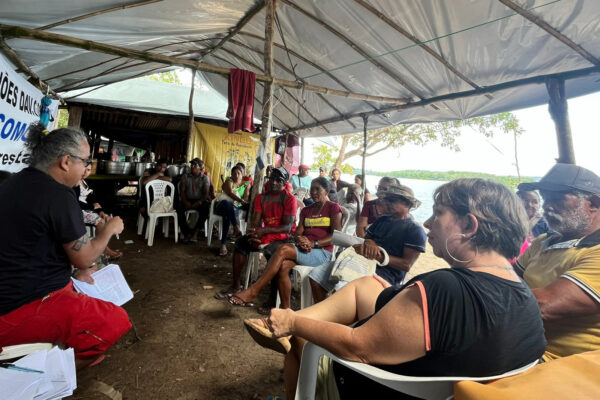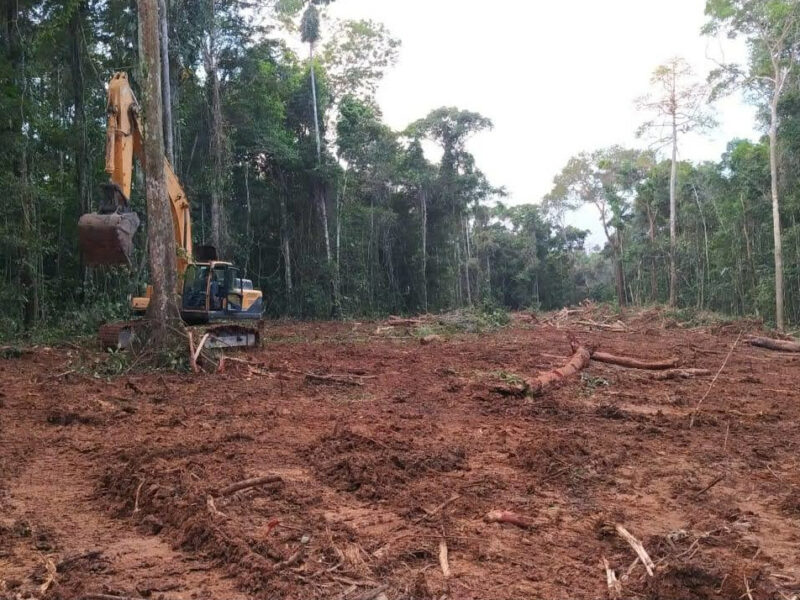
Growing up in the Amazon, it didn’t cross my mind that one day I would be sitting in a Chelsea apartment in New York City writing about the importance of organized civil society movements and demanding that governments take action towards the protection of the only planet that we have.
Many people are still skeptical about the reality that global mass consumption and a corrupt system are driving us to the last days of humanity and the destruction of the planet due to climate change. The reality is that we must take action and urge immediate sustainable solutions to our governments. How? That is not an easy question to answer, but the most important one we must ask ourselves. People – all human beings, each one of us – we all have to realize that we are civil society, that (in theory, anyway) we elect governments and our voices should matter and must be heard.
In an attempt to make my voice heard, this past September I traveled from the Ecuadorian Amazon to be part of the People’s Climate March in New York City – the largest climate march in history – to walk alongside my fellow indigenous brothers and sisters, communities from around the globe affected by climate change, people from the north and the south. This very moment gave me hope, made me feel that the struggle is not only the indigenous people’s struggle: it is the struggle of the planet; the struggle of students; the struggle of the rich and the poor; the struggle of all of us, the people who inhabit this planet.
When I was 12 years old I decided to become an activist and fight for the advancement of indigenous people’s rights whose territories and livelihoods are being threatened by the oil industry. Today I am striving to do something for the planet as a whole. We the indigenous people from all around the globe and especially the Amazon have protected our territory for thousands of years so that we can have fresh air, water and a healthy environment to live in for future generations.
Why does my homeland matter so much? The Amazon is the largest carbon sink of the planet, destroying it will not only affect us locally, but the whole world as well. There is broad agreement amongst experts from the United Nations Framework Convention on Climate Change (UNFCCC) to the International Energy Agency, that if we want to keep global temperatures at only a two degree increase, we cannot burn 2/3 of all fossil fuels we already have found. That means 50% of oil and 80% of coal reserves have to stay in the ground. But instead of talking about which reserves will be kept in the ground, the industry is scouring the earth looking for more fossil fuels in some of the most treasured places on the planet: the headwaters of the Amazon, Yasuní National Park, the Arctic and off the Great Barrier Reef in Australia.
I came here with Amazon Watch and as part of the YASunidos grassroots delegation that has brought indigenous leaders from across the Ecuadorian Amazon to the US to tell their stories and the stories of the Amazon. For the first time in Ecuador, urban youth from all sectors of Ecuadorian society – youth from the Amazon region together with youth from cities to the Andes and the coast – have joined together demanding that the Ecuadorian government Keep the Oil in the Ground in the Amazon.
YASunidos is a collective of collectives, born in August of 2013 after our President Rafael Correa pulled the plug on the Yasuní-ITT Initiative, which sought to keep the ITT oil fields that lie beneath Yasuní National Park (one of the most biodiverse rainforests on earth) permanently in the ground in exchange for international compensation for half of the country’s forgone revenues, and approved drilling. We are fighting for the defense of the Yasuní National Park, which is now being destroyed by a rapidly expanding oil frontier. Its rivers and our communities are literally being poisoned to extract what would amount to fewer than 15 days worth of feeding the world’s oil consumption. That’s just two weeks in exchange for destroying one of the most biodiverse places on the planet. Is it really worth it?
YASunidos waged a noble grassroots campaign to gather signatures to force a national referendum on oil drilling in Yasuní. After obtaining 757,623 – some 7% of the electorate and roughly 200,000 more than needed – Ecuador’s National Election Committee denied the will of voters and rejected the referendum drive. YASunidos is currently asking the Inter-American Commission on Human Rights (IACHR) to find the Ecuadorian state guilty of violating the right to democratic participation guaranteed in the country’s constitution and oblige the Ecuadorian state to restore these rights.
As my fellow YASunidos collective members and I travel the United States visiting university campuses, people from all backgrounds, an array of collectives and organizations, we are telling our stories and inviting you to join the campaign to Keep the Oil in the Ground in the Amazon and beyond. The time to take action is now. This is no longer only the struggle of communities of color and poor communities that are hit hardest by fossil fuel extraction. This is a call for all of us that care for the planet and need a planet to live. The earth can no longer afford poor decisions made by our governments, the change has to start with us. This can be the beginning of a new era, an era without fossil fuels and the start of a clean energy path towards real solutions.













